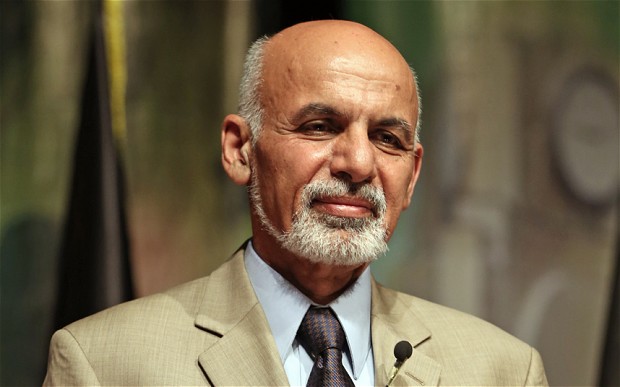Talks With Afghan Taliban on the Anvil
Afghan President Ashraf Ghani

NEW DELHI: As the thirteen year Afghan war draws to a close, sources have indicated that the Afghan Taliban has given the green signal to starting a dialogue process with the newly formed Afghan government.
A report in The Express Tribune this week quoted an unnamed former top commander of the group saying, “Taliban officials, who had been involved in talks with the Pakistanis and the Chinese, and had sought time for consultations with the senior leaders, have received a green signal from the leadership,” adding that “Pakistani officials had advised Taliban leaders to sit face-to-face with the Afghan government and put their demands to find out a political solution to the problem.”
The same report quoted another unnamed Taliban source confirming the report and adding that “a small delegation will be visiting Pakistan in days for consultations” to be able to take the discussion with the Afghan government forward.
The report also quotes the source saying that there will be a move to reopen the group’s Doha office, which was closed in 2013 just a few days after it was opened as then- Afghan President Hamid Karzai objected to the display of a plaque reading ‘The Islamic Emirate of Afghanistan.’
The report comes just days after a statement by newly elected Afghan President Ashraf Ghani who said "the grounds for peace have never been better in the last 36 years.” Speaking at a joint press conference on Saturday with visiting US Defense Secretary Ash Carter, Ghani said: "Our approach is productive. We are hopeful. The direction is positive but we cannot make premature announcements." If talks do resume in March, it will be right before the beginning of the Taliban’s summer offensive -- when better weather provides more opportunities for resumed fighting.
However, there is still some uncertainty about the fate of US-led foreign troops in the country, a majority of which were recalled at the turn of the year. US President Barack Obama’s current plan is to halve the 13,000 US troops that remain in Afghanistan by the end of this year, and cut that number to near zero by the end of 2016. At the peak of the war, US troops numbered 140,000 in 2009-10. Defense Secretary Carter seemed to hint that this timeline is up for review, and details will perhaps emerge when President Ghani visits the US next month.
If however, the scheduled plans for withdrawal do change, a relevant question relates to how that will impact the Afghan government’s attempt at dialogue with the Taliban.
Ghani, who is seen as a closer ally of the US than his predecessor Hamid Karzai (Karzai was once on favourable terms with the US but relations deteriorated toward the end of his term), had reached out to the Taliban soon after being sworn in as the country’s President. “Peace is our highest priority. We invite the political opposition, particularly the Taliban, to join and enter Afghan dialogue, and ask all of our international partners to support an Afghan-led and Afghan-owned peace process," Ghani said at a conference on Afghan peace and reconstruction early on in his term. "We must not and will not permit groups pursuing grand illusions to use our country as the battleground or launching-pad against the international system,” the Afghan president added.
Karzai, too, had made repeated requests to the Taliban, who refused to join a dialogue process as the group considers the Afghan government illegitimate. If Ghani is indeed able to ensure that the dialogue processes commences, Afghanistan may finally stand a chance at peace.



